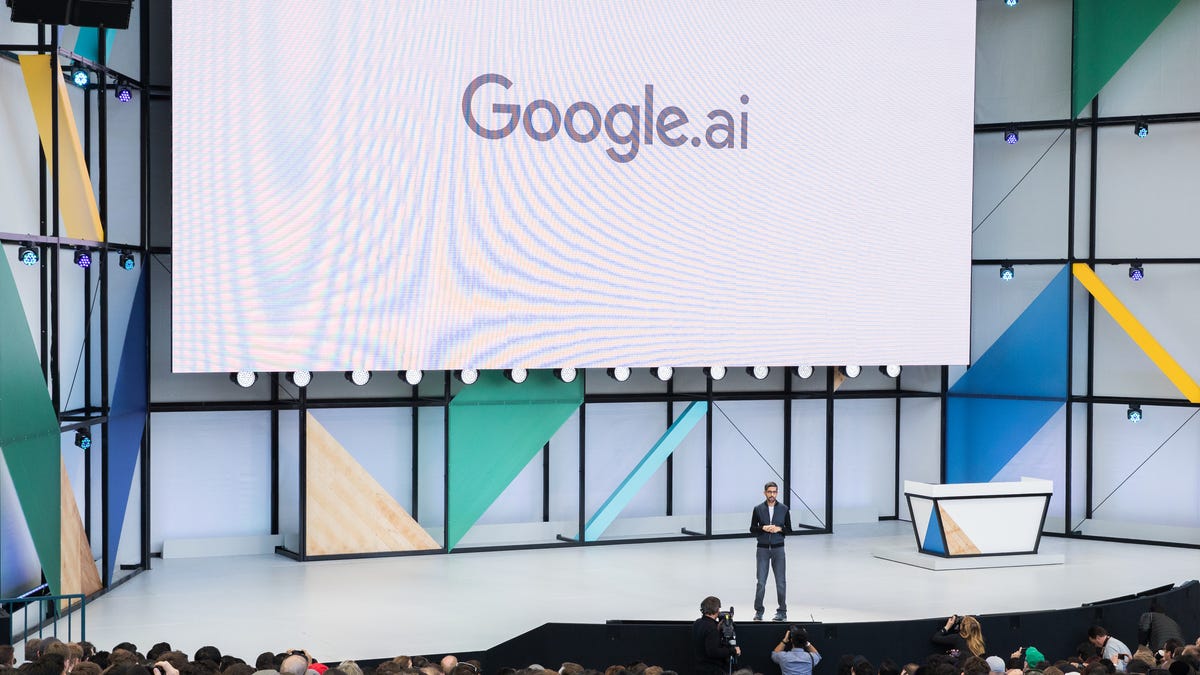It's happening: Google's AI is building more AIs
We've reached AI inception, but Google CEO Sundar Pichai still wants to "go deeper."

Google.ai will see AI benefit every Google product under the sun.
Put away your machine learning degrees -- artificial intelligence is now at the stage where it's ready to replicate and improve on itself, according to Google .
Googlers have designed AIs that are capable of "learning to learn," said CEO Sundar Pichai, speaking Wednesday at Google I/O , the company's annual developer's conference in Mountain View, California.
"We are excited about designing better machine learning models, but these days it is really painstaking," said Pichai. Instead of relying on human labor to design new models, Google is now delegating the responsibility to machine learning models it already built.
More from Google I/O 2017
His staff often joke to him that they've reached "AI inception", he said. "I tell them, 'we must go deeper'."
This is all part of a project called Google.ai, which will see gains in artificial intelligence benefit every single product across the Google portfolio. The most important of these, said Pichai, are Google Search and Google Assistant, as well as how the two will work together.
"We are evolving Google Search to be more assistive to our users," he said. This means we can expect to see better integration between the voice assistant's intelligence and search, as well as a blurring of the boundaries between the two.
It will also be used to create tools for health care and to assist in pathology, such as improving breast cancer diagnosis, which still currently results in high levels of disagreement between experts.
Chemistry will benefit too, Pichai added. The job of predicting the properties of new molecules, which is essential in drug discovery, takes "an enormous amount of time" right now, he said. "One day, AI will invent new molecules that will behave in predefined ways."
It's Complicated: This is dating in the age of apps. Having fun yet? These stories get to the heart of the matter.
Tech Enabled: CNET chronicles tech's role in providing new kinds of accessibility.

